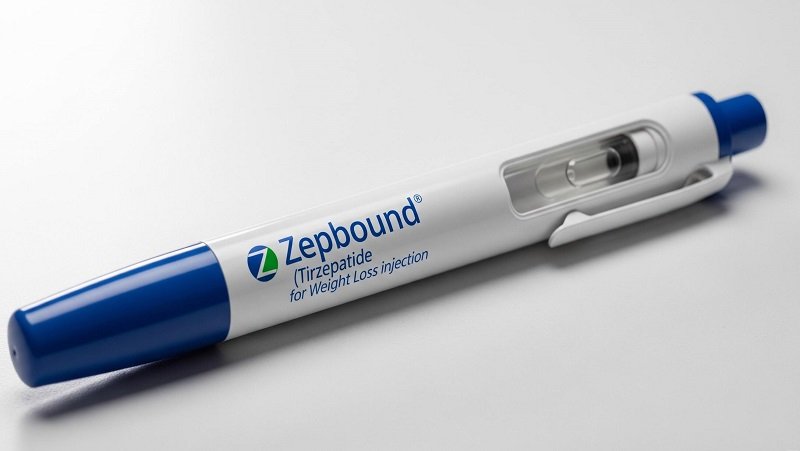Big changes are coming for anyone using Tirzepatide (Zepbound) as part of their weight loss journey. In a move that is making waves across the healthcare industry, CVS Health has recently announced that it will remove “Zepbound from the CVS Caremark formulary, effective July 1, 2025. This means that CVS Health will no longer cover Tirzepatide for weight loss under its insurance plans. CVS, however, will cover Wegovy in its formularies, a rival GLP-1 drug by Novo Nordisk.
The decision has sparked considerable controversy as patients using Zepbound for weight loss, covered through their CVS Caremark plan, may now face higher out-of-pocket expenses for their treatment.
This change doesn’t just affect which medications are covered. It could also impact your Tirzepatide weight loss treatment, monthly expenses, and even your health journey.
So, why is CVS making this change? And what does it mean for patients and payers (employers and insurance providers)? Let’s find out.
What is Tirzepatide and How Does Tirzepatide Work for Weight Loss
Tirzepatide, sold as Zepbound, is a GLP-1/GIP receptor agonist that helps people effectively lose weight. Approved by the Food and Drug Administration (FDA), Tirzepatide is one of the most talked-about weight loss drugs due to its powerful results in clinical trials.
|Also Read: Weight Loss with Semaglutide or Tirzepatide: Which Works Better?|
Why Did CVS Drop Tirzepatide?
While the reasons to stop covering Tirzepatide for weight loss have not been stated, the move seems to have been led by behind-the-scenes price negotiations and costs.
Pharmacy benefit managers (PBMs), like CVS Caremark, are constantly evaluating drugs based on their clinical effectiveness, pricing, and rebates. When several medicines fall under the same category, in this case Zepbound and Wegovy, PBMs leverage competition to negotiate cheaper prices, which might have been the case this time around too.
What This Means for Patients
If you’re currently taking Tirzepatide for weight loss and your health plan is through CVS Caremark, here’s what you need to know:
1. You’ll Likely Have to Pay More
Zepbound will be moved to a non-preferred or non-covered status, which means you may have to pay the full retail price for Tirzepatide treatment, which could exceed $1,000 per month.
2. You Might Need to Switch to Wegovy
CVS is still covering Wegovy, another GLP-1 medication. Talk to a board-certified obesity medicine physician, like Dr. Mona Lala, to check if switching to Wegovy or other GLP-1 medicines is suitable for your health needs.
3. You May Need a Prior Authorization
If Tirzepatide treatment is medically necessary for you, your weight loss doctor may have to file an appeal or request prior authorization. But these processes can be time-consuming and don’t guarantee approval.
What Would Be the Effect of This Decision?
CVS’s decision to drop Tirzepatide from its formulary may be more than just a business call – it could be a sign of broader changes in how weight loss drugs will be managed by insurers and PBMs. As the use of GLP-1 medications for weight loss continues to surge, so does the concern about their growing cost burden on insurers. PBMs like CVS Caremark are feeling the pressure to either restrict access or strike better pricing deals with manufacturers.
But many patients see GLP-1s as not just weight loss tools, but as a path to better overall health, especially for those struggling with obesity-related conditions. So any move to limit access, such as CVS’s recent decision, is likely to generate pushback by those using Tirzepatide for weight loss.
Pharmaceutical companies, too, have started to explore alternative ways to reach patients. This could fundamentally shift how medications are distributed and covered, making it harder for PBMs to control access like they’ve done in the past.
Is the GLP-1 Drug Landscape Changing?
Yes, rapidly.
GLP-1 medications like Zepbound, Wegovy, and Ozempic are no longer just diabetes drugs. They are becoming central to how we treat obesity, heart disease, and other health conditions.
But they’re also very expensive, and insurers are trying to control spiraling costs. If you are taking or planning to take these medications for weight loss, expect to see:
- More prior authorizations
- Formulary exclusions (like this one)
- Step therapy, where patients must try cheaper drugs first
Patients, weight loss consultants, and pharma companies will need to navigate this evolving landscape carefully.
What Can You Do If You’re Affected?
If you’re currently taking Zepbound or Tirzepatide for weight loss and are insured by CVS Caremark:
- Talk to your weight loss doctor early to explore if switching to Wegovy is a safe and effective option for you.
- Call your insurance provider and ask about options, appeals, and whether Zepbound will be covered in any capacity.
- Check Eli Lilly’s patient assistance programs that help with cost if you qualify.
- Insurance policies keep changing. Keep an eye on updates from CVS, your HR team, or your insurance provider.
Remember, you have options, and early action is key. Talk to your doctor, ask the hard questions, and don’t be afraid to advocate for your health.
Need help navigating your coverage or exploring options?
Schedule a consultation with Dr. Mona Lala for hassle-free support on managing your care and coverage in a changing healthcare world.

